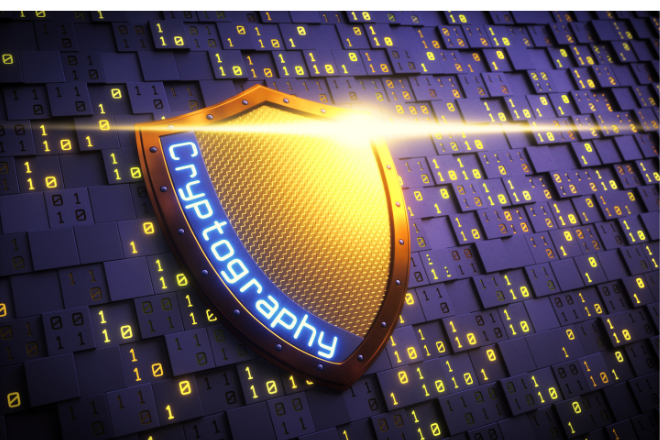Top 15 cyber security questions and answers in 2022

Seeking your big break in the cyber security field? Whether you’ve got your foot in the door or just starting out your tech career, having the right technical knowledge under your belt is key to landing the right roles and opportunities.
Below, we break down the top most commonly-asked technical questions in cyber security job interviews – and how to ace the answers for each.
Is cyber security a good career?
With our world growing ever-more digitised, the demand for cyber security skills has seen an exponential rise in recent years. Reports currently estimate a worldwide need for 2.72 million additional workers to close the growing skills gap in the sector – with Australian companies willing to pay well into the six-figure salary range.
On top of this, the country’s 2022-23 federal budget has made huge contributions to further industry growth, including a whopping $10 billion investment in “new national cyber and intelligence capabilities” over the next decade.
Needless to say, cyber security is currently one of the highest-paying professions of Australia’s job market; one brimming with vast opportunity and innovation.
What qualifications do I need to work in cyber security?
While bachelor’s or postgraduate degrees are common qualifications held by those in the ICT security field, plenty have also entered the industry through Vocational Training and Education (VET) certifications. According Labour Market Insights, 25.7% of cyber security workers currently hold a Certificate III, Certificate IV, Diploma, or Advanced Diploma qualification.
As such, those looking to enter cyber security can start by pursuing shorter VET courses in tech (such as Upskilled’s Certificate III in Information Technology - Focus on Basic Cyber Security Awareness) to have an initial feel of the industry. These programs are also often more practical, focusing on hands-on experience and skills – and thus getting you “work-ready” for entry-level opportunities in the field.
How to prepare for a job in cyber security

Though formal training and certification are highly recommended in preparing for a cyber security career – it also pays to brush up on the common technical questions often asked in job interviews. Top questions include:
What is cyber security?
Answer: Cyber security refers to the protection of hardware, software, and internet-connected systems from unauthorized access. Such breaches can come from both third-party outsiders attempting to hack your network systems, as well as insider actors with malicious intent.
What are the main elements of cyber security?
Answer: The primary elements of cyber security include network security, operational security, application security, information security, end-user security, disaster recovery (or business continuity) planning, and user awareness or education.
What are the benefits of cyber security?
Answer: The main benefits of cyber security include:
- the ability to protect data from unwanted change, loss or deletion
- the prevention of financial fraud or embezzlement
- maintaining customer/client trust (and in turn, protecting business reputation)
- reducing downtime and costs related to unwanted security breaches
- enhancing user awareness of common attacks and breaches – such as phishing, social engineering, and common forms of malware
What is the OSI model?
Answer: An OSI (Open Systems Interconnection) model is a reference model that explains how applications communicate and interact with each other over a given computer network. This model is comprised of seven layers: the physical layer, the data link layer, the network layer, the transport layer, the session layer, the presentation layer, and finally – the application layer.
What is a firewall?
Answer: A firewall is a network security device that monitors incoming and outgoing network traffic. It helps block or permit access based on a defined set of security rules, and helps establish a protective barrier between trusted and untrusted networks.
What is a VPN?
Answer: A VPN (Virtual Private Network) is a security tool that provides you with an encrypted server – shielding your IP address and identity from prying internet eyes. These include corporations, government agencies, or potential hackers.
How would you keep a computer secure?
Answer: Common ways to keep a computer system secure would be to:
- Ensure your device and antivirus software are updated regularly
- Implement multi-factor authentication
- Use different, complex alphanumerical passwords for each of your user profiles (and consider investing in a password manager)
- Implement a firewall to keep cyber-attacks at bay
- Install anti-phishing software to identify suspicious e-mails
What are common sources of malware?
Answer: Malware is malicious software used to access, tamper with, or destroy sensitive information on your device. Common sources include suspicious e-mail attachments, internet downloads, internet pop-ups, network connections, and malicious advertisements.
What is cryptography? 
Answer: Cryptography is a cyber security technique used to transform valuable data into a format unrecognisable to unauthorised users (also known as “adversaries”). The original information is known as “plaintext”, which is then encrypted through an algorithm and turned into unreadable data among third-parties, also known as “ciphertext”.
What is the difference between black box and white box testing?
Answer: “Black box” testing refers to a software testing process in which the internal code or structure is hidden from the tester. In contrast, “white box” testing is when this internal code or structure is known by the tester.
What common steps do hackers take in breaching a server or network?
Answer: The common steps involved in hacking a server or network include:
- Reconnaissance, in which hackers gather basic information or evidence on the target;
- Scanning, where hackers take their gathered data and apply various tools to further glean in-depth information on the target;
- Gaining Access, where hackers then apply the necessary attack methods on the target;
- Maintaining Access, where hackers ensure a way back to the compromised system or device; and
- Covering Tracks, in which hackers attempt to conceal their breach and activity from security professionals.
What is spoofing?
Answer: Spoofing is a common cyber-crime technique in which the attacker pretends to be another person or someone from a legitimate organisation. They typically get in contact with their target through fraudulent e-mails, often meticulously designed to impersonate a specific individual or company.
What is a social engineering attack?
Answer: Social engineering attacks are a manipulative form of cyber crime in which targets are “tricked” into handing over sensitive information. This is typically done through phishing, in which users are manipulated into opening e-mail attachments that unknowingly download a virus.
What are black hat, grey hat, and white hat hacker?
Answer: Black-hat hackers are malicious actors that attempt to gain unauthorised access to your system, typically to steal or tamper with sensitive information.
White-hat hackers are also known as “ethical hackers”, hired by companies for their extensive knowledge in hacking tools and methodologies. They generally implement these tactics in the company’s systems, helping identify any security holes or vulnerabilities.
Grey-hat hackers are security experts that may bend the ethical security rules and standards of a company, though do not necessarily possess the intentions of a malicious (black-hat) hacker.
What is encryption and decryption?
Answer: Encryption is the process of rendering data (plaintext) into something seemingly unreadable or meaningless (ciphertext) to those with unauthorized access. Decryption is the process of turning this ciphertext back into plaintext.
Looking to build your skills in cyber security? Upskilled offers a wide range of courses in cyber security, including a bootcamp programs that train you for roles as a Cyber Security Professional or Cyber Security Specialist. Whether you’re a seasoned expert or just stepping foot in the sector, our programs keep you up-to-date on the latest skills required to compete in this expanding industry.
Best of all, each course is delivered online, helping you study at a schedule and pace that suits you best.
Build yourself an exciting career in the world of cyber security, and enquire with us on a course today.


)
)

